
I'd like to get one thing straight in my own mind as we begin our interview together: How do you pronounce your last name? Busse as in like school bus? Busse as in bossy with an oo sound or an uh sound? Busse as in the way the French pronounce bus? Or some other way I'm missing? And what is the origin of your surname (taking into account that you married into the name, I presume)?

It's the first one, school bus, with a long e at the end (Bussee). Yes, I married into this name and I believe my husband said it was German.

Now that we have that cleared up, tell me a bit about your early interest in writing. At what age did you realize you wanted to write? What was the first creative thing you remember writing? Did you show it to anyone, and if so, how was it received?
Good Question! When I was a kid, I was chosen to participate in a
 writing
workshop with a local author. Each student in the workshop had to
write a story. Mine was about a super hero squirrel, complete with
illustrations, including the squirrel in a little red cape. I don't
remember how the story was received, but I do remember that squirrel!
writing
workshop with a local author. Each student in the workshop had to
write a story. Mine was about a super hero squirrel, complete with
illustrations, including the squirrel in a little red cape. I don't
remember how the story was received, but I do remember that squirrel! 
A super hero squirrel--I love it! Tell us about the authors who awakened your interest in reading as a young person (I'm guessing Beatrix Potter and her Squirrel Nutkin, which, incidentally, happened to be CS Lewis's favorite book of hers) and which ones have had the strongest influences on your writing?
I've lo
 ved
reading ever since I was a young girl. I read everything from Nancy
Drew to Sherlock Holmes to Lord of the Rings to Anne of Green Gables.
So I guess you could say all those
authors (Carolyn Keene, Sir Arthur Conan Doyle, and others) awakened
my interest in reading. Out of all my early reading, it is J.R.R.
Tolkien who has had the strongest influence in my writing. I read
everything of his I could get my hands on and loved his world of Middle
Earth. It was his books that drew me to fantasy in the first place.
ved
reading ever since I was a young girl. I read everything from Nancy
Drew to Sherlock Holmes to Lord of the Rings to Anne of Green Gables.
So I guess you could say all those
authors (Carolyn Keene, Sir Arthur Conan Doyle, and others) awakened
my interest in reading. Out of all my early reading, it is J.R.R.
Tolkien who has had the strongest influence in my writing. I read
everything of his I could get my hands on and loved his world of Middle
Earth. It was his books that drew me to fantasy in the first place.
My 8 year old daughter is crazy about Anne of Green Gables; I remember so many wonderful hours reading those books aloud with my eldest daughter (she just turned 25 and is now married--still enthralled with Anne; my mother just visited Avonlea and came home with so many wonderful images and stories from where the Anne books originate). What do you think about e-books and the many changes coming to publishing? Are there any self-published e-book plans in your future?

My daughter just started reading Anne of Green Gables and loves them as well. It is wonderful to share the books I loved as a child with my children now :)
I'm a practical person. When I started running out of shelf space, my husband bought me a kindle. I wasn't sure if I would like reading from an electronic device rather than holding a book, but once I started, I loved it! I read almost everything now from my iPad.
I guess I don't really have an opinion about the many changes coming to publishing. Change will always happen, whether that is in publishing, music, film, etc... If I can use it (like ebooks, audiobooks, etc...), then I will use it. If not, then I won't. God is bigger than the publishing world. I don't need to be afraid of change. He will do what He is going to do with my writing, whether there are changes or not. I can trust in Him.
I've thought about self publishing, but that a long way off. Right now I am content to write one book at a time and continue with my relationship with Marcher Lord Press. It's about all I can handle while raising my four children :)
 I'm this anachronism on the hoof and so have constant grapplings with
new technology (as I read my Bible on my iPhone and type my
manuscripts on my laptop and iPad; teach and lecture using a Smart
board, blog, and do electronic interviews on internet scavenger hunts,
you know, old-fashioned things like that). Flannery O'Conner has
this great chapter in her book Mystery and Manners on challenges facing Christian writers. What would you say are the challenges you face being a Christian and a writer?
I'm this anachronism on the hoof and so have constant grapplings with
new technology (as I read my Bible on my iPhone and type my
manuscripts on my laptop and iPad; teach and lecture using a Smart
board, blog, and do electronic interviews on internet scavenger hunts,
you know, old-fashioned things like that). Flannery O'Conner has
this great chapter in her book Mystery and Manners on challenges facing Christian writers. What would you say are the challenges you face being a Christian and a writer?
It is challenging to balance all the roles I fill: wife, mother, writer, and pastor's wife. Sometimes I have to put my writing aside to be a mom. Evenings are spent with my husband instead of writing. There are days where all I can focus on is ministry. And then there are deadlines that mean mommy needs to disappear in her room with her laptop for hours. I am blessed that my family and my church understand that I am a writer and juggle a lot of roles. But it is still a challenge to do each one, and each one well.
The biggest challenge to being a Christian writer is the automatic bias I sometimes face just because I'm a Christian. Everyone writes from their worldview, yet Christians are the only ones who seem to be attacked if they put anything into their writing that remotely looks Christian. I don't let that stop me from writing from the viewpoint of my own beliefs, but it does spur me on to write the best I can and let the story speak for itself. Fiction is a story, not a sermon. And so I treat it as such.

I so totally agree: Fiction is a story not a sermon (yet the best sermons recognize the power of story, which is after all what the Bible is, a story--just saying). What would you like readers to conclude from your books about your legacy as a writer and as a Christian--after you are dead and buried? Put another way, what will be the reoccurring world view impressions readers will take away from reading your books?

The two themes of my books are the gospel and what it means to follow God. The human race is broken and filled with darkness, and there is nothing we can do to save ourselves. So God, in His great love, does what we cannot do for ourselves: He sets us free by taking that darkness upon Himself. We are transformed the moment our lives are touched by God. But the path we now follow is not easy. Sometimes God asks us to do hard things, sometimes He is silent, sometimes He seems to have disappeared. Faith is not about blindly following, it is about choosing to follow because you trust the one you follow. This doesn't happen instantly, it is a growing process, with tears and prayers and scrapped knees along the journey.
 So
well put, Morgan. I've had a lengthy discussion with another author,
and based on that discussion, I'd like to play Devil's advocate with
you, if I may. Isn't being a Christian author and having gospel
objectives in your writing--as you have so articulately described them
above--isn't that going to lessen the authenticity of real fiction?
Maybe this is the attitude and assumption, the automatic bias, you were
referring to earlier. The Hollywood version of C. S. Lewis's life, Shadowlands,
has Anthony Hopkins say about his (Lewis's) Narnia fiction, "Is just
what it is." There seems to be significant pressure placed on young
fiction writers who are Christians to diminish their Christianity, to
downplay their world view, to depict graphic violence or sexual
situations, or to use swearing or coarse language as as an obligatory
way of legitimizing themselves as a real writer. Have you felt any of
this pressure and what would you say to a young (or older) author who is
a Christian but seems to want no Christian message to be implicit in
his or her writing; it just is what it is?
So
well put, Morgan. I've had a lengthy discussion with another author,
and based on that discussion, I'd like to play Devil's advocate with
you, if I may. Isn't being a Christian author and having gospel
objectives in your writing--as you have so articulately described them
above--isn't that going to lessen the authenticity of real fiction?
Maybe this is the attitude and assumption, the automatic bias, you were
referring to earlier. The Hollywood version of C. S. Lewis's life, Shadowlands,
has Anthony Hopkins say about his (Lewis's) Narnia fiction, "Is just
what it is." There seems to be significant pressure placed on young
fiction writers who are Christians to diminish their Christianity, to
downplay their world view, to depict graphic violence or sexual
situations, or to use swearing or coarse language as as an obligatory
way of legitimizing themselves as a real writer. Have you felt any of
this pressure and what would you say to a young (or older) author who is
a Christian but seems to want no Christian message to be implicit in
his or her writing; it just is what it is? 
Great question, Doug! I actually teach a class about how to incorporate the gospel into your story without preaching. I think we see too many stories where the gospel is spelled out (hence why the authenticity of the story seems to be less than real). You're reading a great story, then all of a sudden there is this salvation moment that seems to come out of nowhere. The problem is, the gospel is not a one time moment, but a lifetime event, from the moment we are conceived (I believe we are born with a sin nature, thus the beginning of our darkness) all the way into eternity. That is why that one salvation scene seems to stick out of the story like a sore thumb.
The gospel needs to be spread out throughout the entire story. Let me give you an example. One of my characters is an assassin (and funny enough, the character is the one almost everyone loves the most). Caleb isn't really evil, but he's definitely not good. He's a man who gets things done, is good at what he does, and enjoys the pleasures his job affords him. However, he is plagued by nightmares where his victims kill him. He knows deep down he will need to pay the price for what he has down and is secretly terrified of his final judgement.Then he meets the Word and realizes the time of his reckoning has come.
This kind of subconscious prodding happens in real life. I can't tell you how many people's testimonies I have heard where God was slowly waking them up to their sin. That's another way to add authenticity to story: read or hear real stories. It doesn't get any real than that! How did people come to God? The stories are as varied as the people themselves.
When the scene between the Word and Caleb finally happens, it's in book 2. The seeds were planted and now Caleb makes a choice, and chooses what the Word offers. He's now going to become this amazing, godly man, right? Wrong. Again, pointing at real life, salvation is like a spark of life that grows over time and changes us. Caleb is still Caleb, but through book 2 and 3 you seem him change (but not sissified, he's still that same get things done, action oriented man).
The gospel, spread out over 3 books, but in an organic way. And that is one character's journey. There are three more characters, including the main character Rowen.
I think another way to have authenticity is to show good people who don't believe. I hate books where there seems to be an "us vs. them' feel, you know, the good guys are Christians and the bad guys aren't. That's not the way it is in real life. I've been some very nice, friendly people who don't believe in God. And I've met people who follow God and are vicious.
As far as swearing, sexual situations, etc... I think that is between the writer, God, and his or her editor. My book is for adults and although I don't have outright swearing or bedroom scenes, you know they are there because people like Caleb (my assassin) don't use words like darn. But there are ways to let the reader know the background and nature of a character without wading through all the darkness. I would also ask why such things need to be added. I personally don't believe in shock value. There needs to be a reason for showing the darker side of life. If not, it should be cut.
Young Christian writers do not need to downplay their worldview; their are many young writers out there who have no problem displaying their worldview within the pages of their stories. But there is a difference between spouting the faith you've learned in Sunday school and the faith you've learned in real life. One is a head knowledge, the other comes from living it. It is the faith that is lived and refined by fire that comes across as most authentic. Strive for that one.
 So
well put, again! I think there are writers and artists who are
Christians but they have accepted the rhetoric of secularism, which
essentially tells us, "Not your religion, but mine." And so we contort
ourselves to create crossover stories that won't offend secularists
(which we'd all be were it not for the extravagant grace of God in
Christ), and we then measure the authenticity of our work by how much it
is like what unbelievers write or paint or whatever. I think that the
insistence that unbelief is the centrist position, the middle way, has
done more to intimidate many of us Christians into silence than
anything else. And I completely concur, on the other hand, that the
superficial token Christian message pasted-in to assuage our conscience
so we can get back to what we really want to write about is not only
bad fiction, but it is bad theology. I remember reading something
Elizabeth Elliot wrote on writing, "Never strive for style; strive for
authenticity." There's nothing more real, more authentic that the good
news of what Jesus has fully accomplished in the gospel; maybe it's
because it is so difficult to depict authentic goodness without
sentimentality that we have such a problem here. But your comments on
the gospel being integrated into the entire story is the key. Well
said.
So
well put, again! I think there are writers and artists who are
Christians but they have accepted the rhetoric of secularism, which
essentially tells us, "Not your religion, but mine." And so we contort
ourselves to create crossover stories that won't offend secularists
(which we'd all be were it not for the extravagant grace of God in
Christ), and we then measure the authenticity of our work by how much it
is like what unbelievers write or paint or whatever. I think that the
insistence that unbelief is the centrist position, the middle way, has
done more to intimidate many of us Christians into silence than
anything else. And I completely concur, on the other hand, that the
superficial token Christian message pasted-in to assuage our conscience
so we can get back to what we really want to write about is not only
bad fiction, but it is bad theology. I remember reading something
Elizabeth Elliot wrote on writing, "Never strive for style; strive for
authenticity." There's nothing more real, more authentic that the good
news of what Jesus has fully accomplished in the gospel; maybe it's
because it is so difficult to depict authentic goodness without
sentimentality that we have such a problem here. But your comments on
the gospel being integrated into the entire story is the key. Well
said. How about if we change the pace for a bit? If you could sit down with any three people from the past who would they be, why would you choose them, what would you want to talk about with them, and what would you want to eat and drink with them?

Hmm, I think I would like to talk to Peter's wife (the apostle Peter), Jeremiah (the prophet), and L. M. Montgomery (author of Anne of Green Gables). Peter's wife because I would love to know what it was like to be married to Peter and be part of the first church. What advice would she give me as a pastor's wife? I would like to ask Jeremiah how did he not lose his faith after serving Israel for 40 years and see nothing earthly for it. And Ms. Montgomery for advice on writing. I think we would all sit down for tea and cake :)

Would you be willing to give readers a peek at a favorite description of a person or place or a favorite dialogue exchange from your writing? And then a link to where readers can find out more about your books?

Here is a passage early on in Daughter of Light where Rowen's power first appears (she finds out later she is a Truthsayer and possesses the ability to see inside the human soul).
Cleon stopped and turned to face her. “You must know why I’ve asked you here.” He stood so close that Rowen had to look up. She could see each dark curly strand around his face. Her heart began to thud inside her chest. Perhaps coming with
Cleon had been a bad idea.
Cleon didn’t wait for her to answer. Instead he placed his hands on her shoulders.
“Cleon, wait.” Rowen took a step back. He was moving too fast—
Cleon moved in close again. “You must realize that not many men in our village would think of bonding with you.” Cleon looked down at her. Rowen could smell the smoke of the smithy on his clothing. “But times have changed. Your father has died—” Rowen scowled at his calloused words— “leaving you all alone. But I can change that.”
He placed a rough, thick hand on her cheek. Rowen turned away. Cleon forced her face back. “I want you to bond withme.” He moved his head down to kiss her. Rowen tried to twist away. Cleon forced her face still and pressed his lips hard down on hers.
Rowen jerked out of his grasp. “Cleon, no!”
His head followed her movement. “I can take care of you, Rowen. And you know no other man will have you.”
“Let go!”
Cleon tightened his grip on her shoulders. Rowen grabbed his wrist and—Time slowed.
A strange sensation rose from deep within her, racing toward her right arm. It surged out where her palm held his wrist.
Here is a link to the first two books in the Follower of the Word series: http://www.marcherlordpress.com/?s=morgan+l+busse&post_type=product

Thanks so much, Morgan L. Busse!
And thanks to you readers.



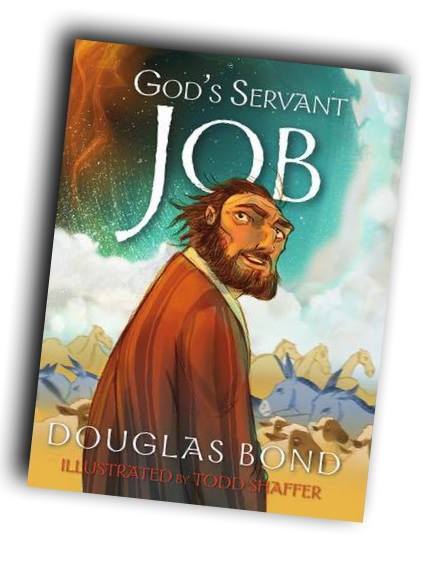


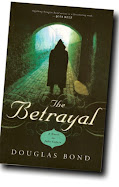
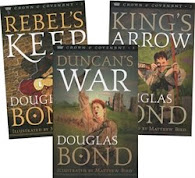
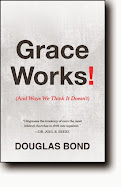
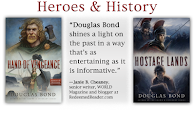

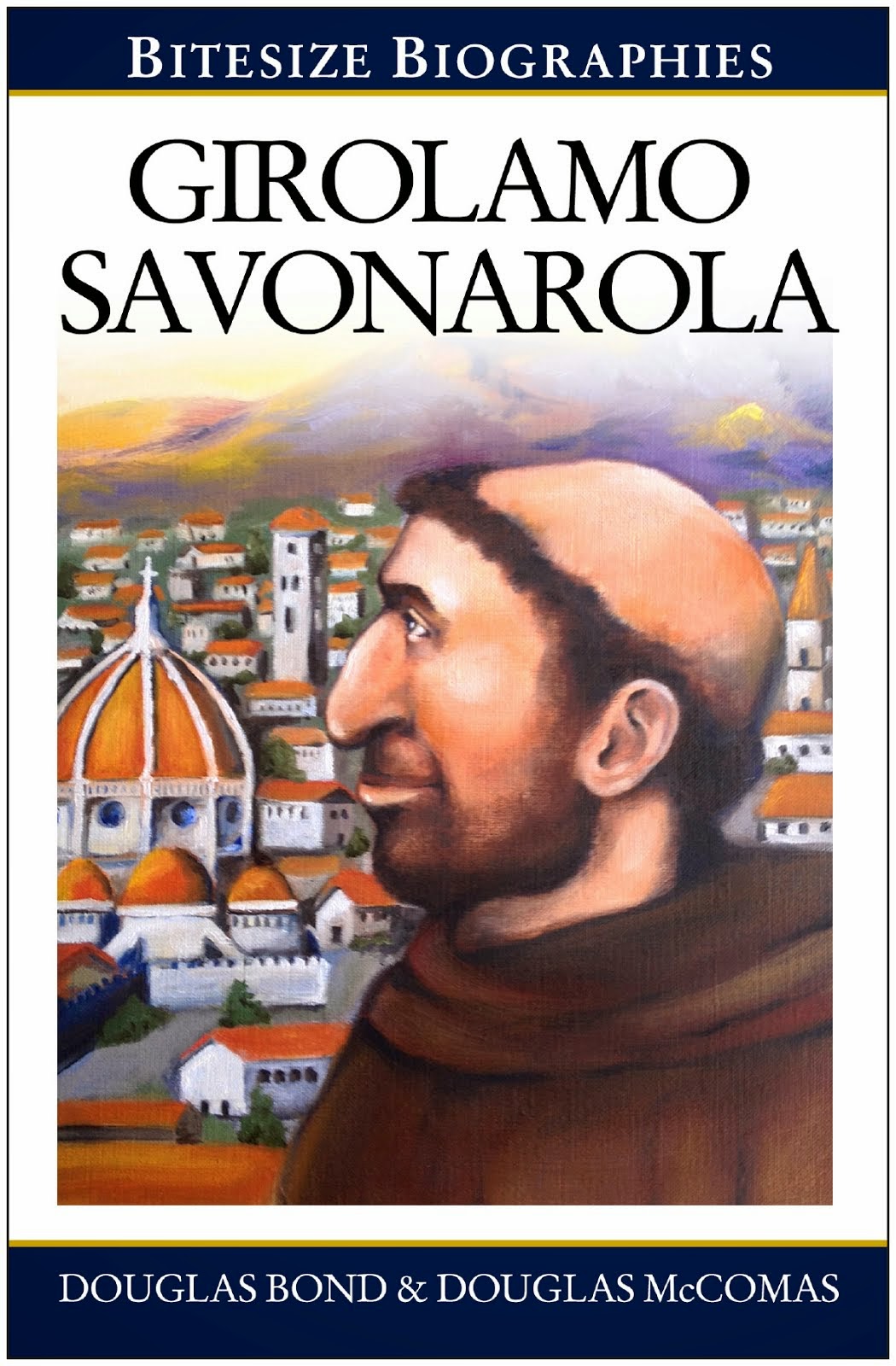


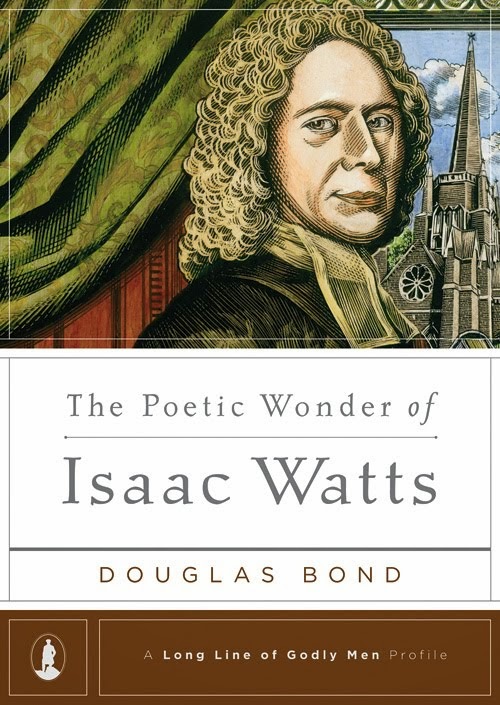




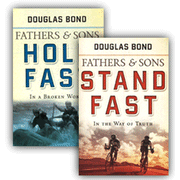

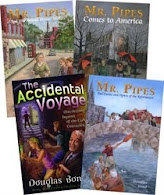

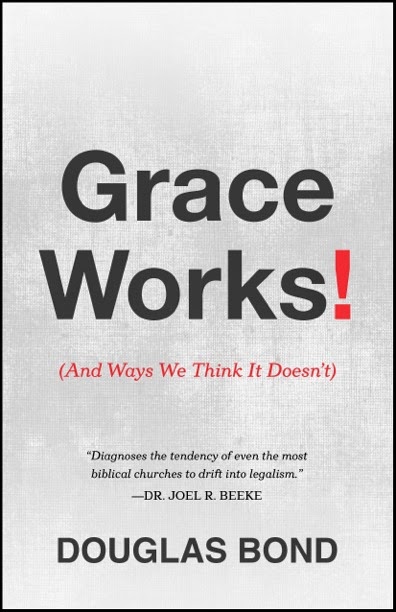
No comments:
Post a Comment